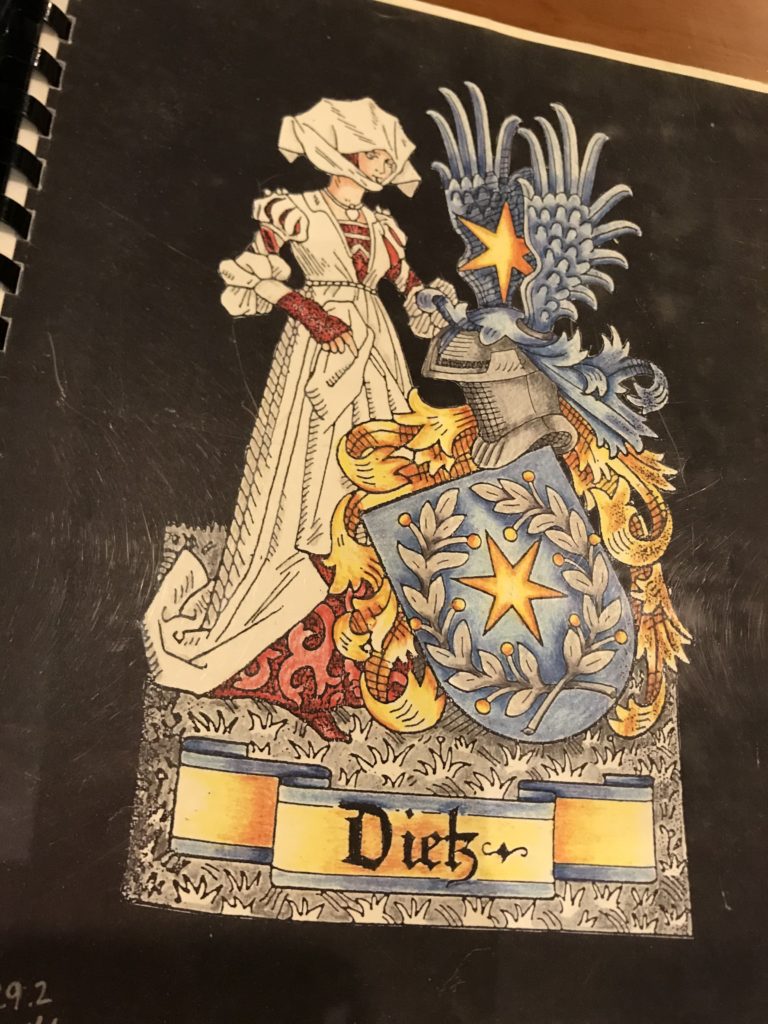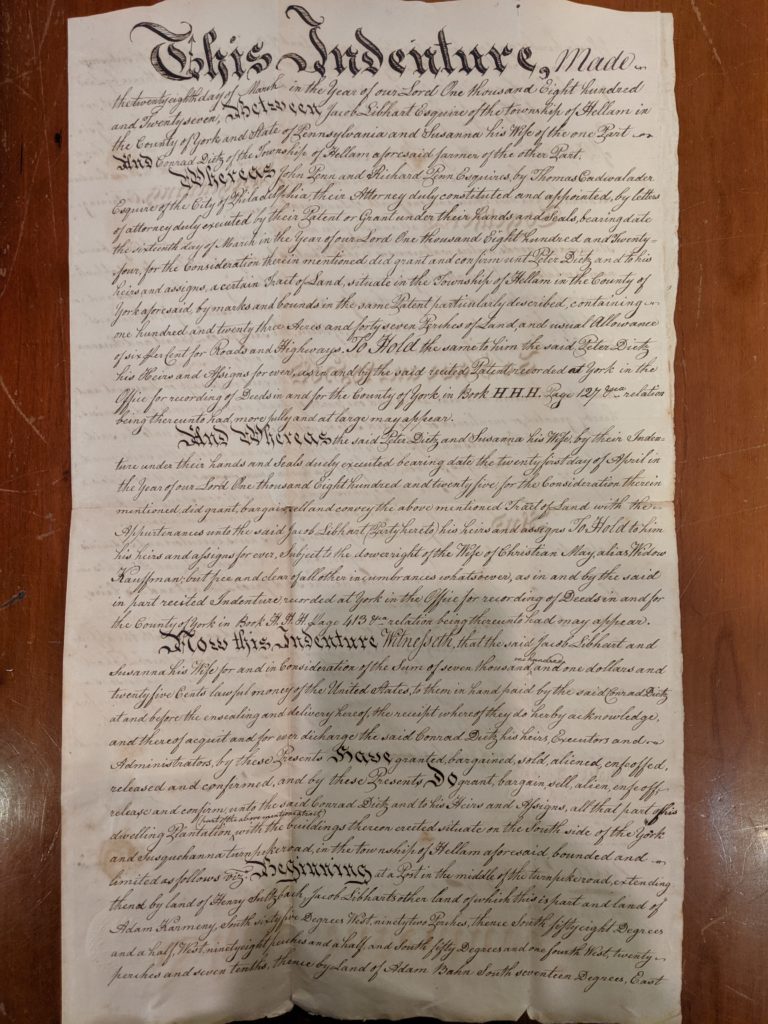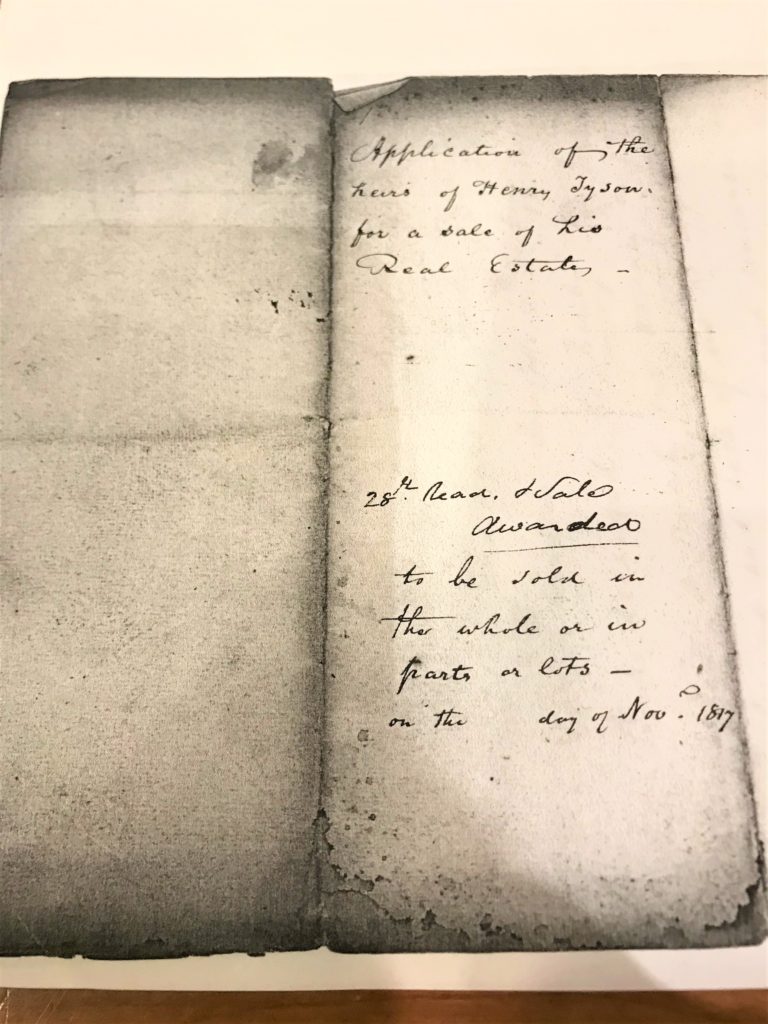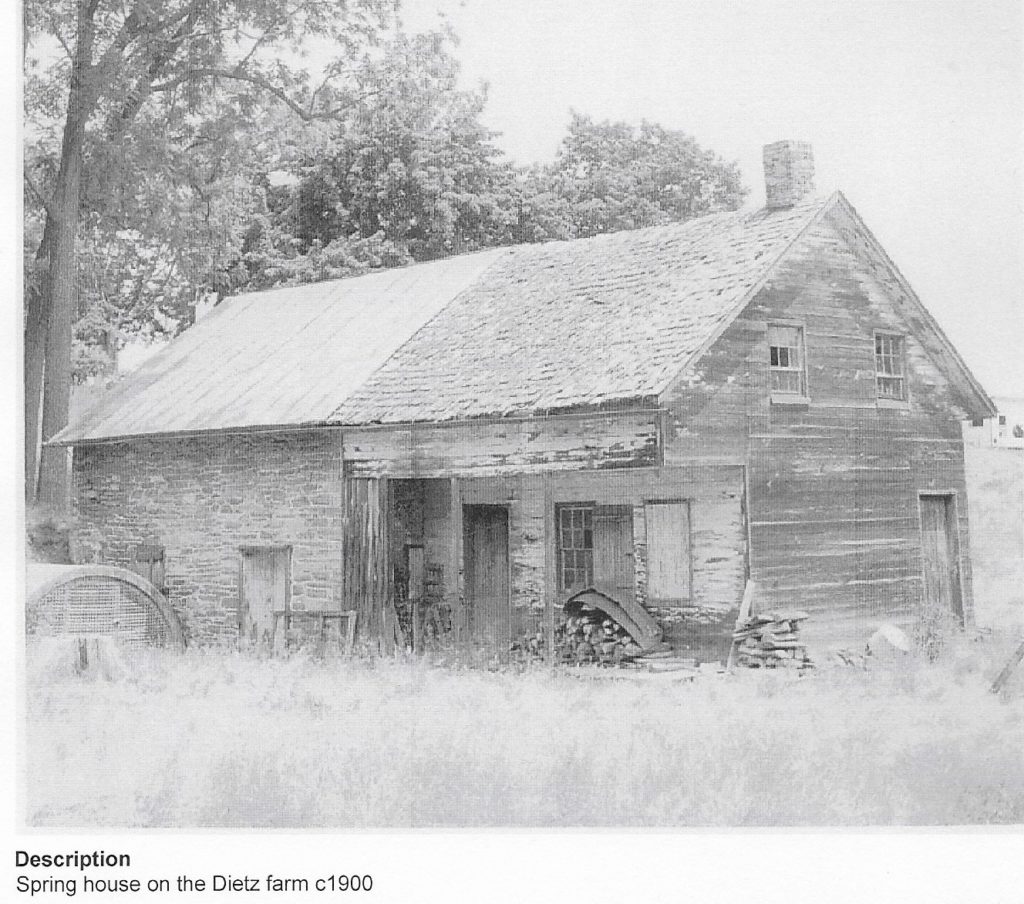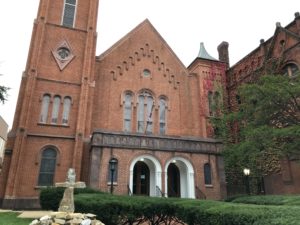
As part of our genealogical research, Tom and I visited the York County History Center in York, Pennsylvania. My experience of county historical societies hasn’t been very positive. They usually seem to be a collection of odds and ends housed in an old building and not well curated. The Richland County Historical Society (in the town where I grew up) is such a collection and only open for three hours on Sunday afternoons. Obviously they don’t really want anyone to visit.
But the York County History Center changed my idea of what a county historical society can be. First, it had a wonderful museum with plenty of space and some very interesting exhibits. Then, there was the fantastic library with any book you could ever want on the history of the county and the families in it. The museum charges admission of $15 per person. If all you want to do is research in the library, then that admission is $8 per person. Both the museum and the library are open Tuesday through Saturday 9 to 5.
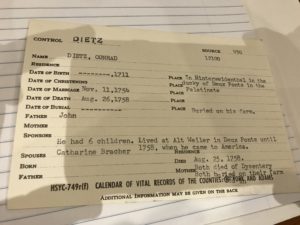
The library has some restrictions: no backpacks, no food or drink, no pens. You can take in your cell phone and a notebook and pencil. These rules make perfect sense when you consider the historical records in the library. The library has a couple of paid staff to answer the hardest questions, but it is mostly run by volunteers. The volunteers are eager to help you find what you are looking for.
When Tom and I went in to the York County History Center library, we were assigned a volunteer who would help us with anything we needed. He asked what we were looking for, and we told him we were researching the Dietz family. I have 27 ancestors that lived in York County over its first 140 years. The last direct ancestor moved to Ohio around 1880. There were lots of people besides Dietzes, but most of them married a Dietz. Dietz is a well-known name in York County.
Our volunteer pointed to the Dietz books (three of them) and then left to get us the Dietz index cards. These are the records they have of all the Dietzes who lived in the county. He came back with two long drawers full of cards! Because they were all listed alphabetically by first name, it was easy to find the people I was looking for. From the cards I made notes of records I wanted to see and then our volunteer got them for us. It was like a treasure hunt!
We looked at maps that had original land grants from 1738 laid out on them. We found deeds, contracts, and mortgages (called indentures in the 1700’s) signed by my ancestors. Wills, church records of baptisms and membership, even some letters. Tom spent most of his time going through books. He read about Dietzes, Laucks, Harbaughs, Schmidts, Tysons, and Liebharts.
I won’t bore you with all the details, but we found out some very interesting facts. Two examples. George Geistweit was a German Reformed pastor who served the church in York for 16 years, from 1804 to 1820. His daughter, Elizabeth, eloped with John Henry Dietz and moved to Ohio. We found a sketch of Rev. Geistweit done by a famous local artist and saw a photo of a stained glass window in memory of Rev. Geistweit. We even found his obituary! After we were done in the library we walked down the street to the York German Reformed Church where he preached (now Trinity UCC).
One more example. Henry Tyson died in 1817. In his will, he stipulated that Peter Deitz, his son-in-law, be the executor of his estate instead of any of his own ten children. Henry’s sons objected to Peter being the executor and contested the will. After ten years of fighting about it, a judge finally ordered everything be sold and divided equally among the ten children. This seems a sad chapter in the family history.
Tom and I learned many more interesting facts about my ancestors. We ended up staying at the library until it closed, taking a very quick break to go get some sandwiches. The York County History Center changed my idea of what a county historical museum can be. I am grateful that they have invested so much in preserving our history. I came away with pages of copied information, pictures of historical documents, and a better understanding of my ancestors.

